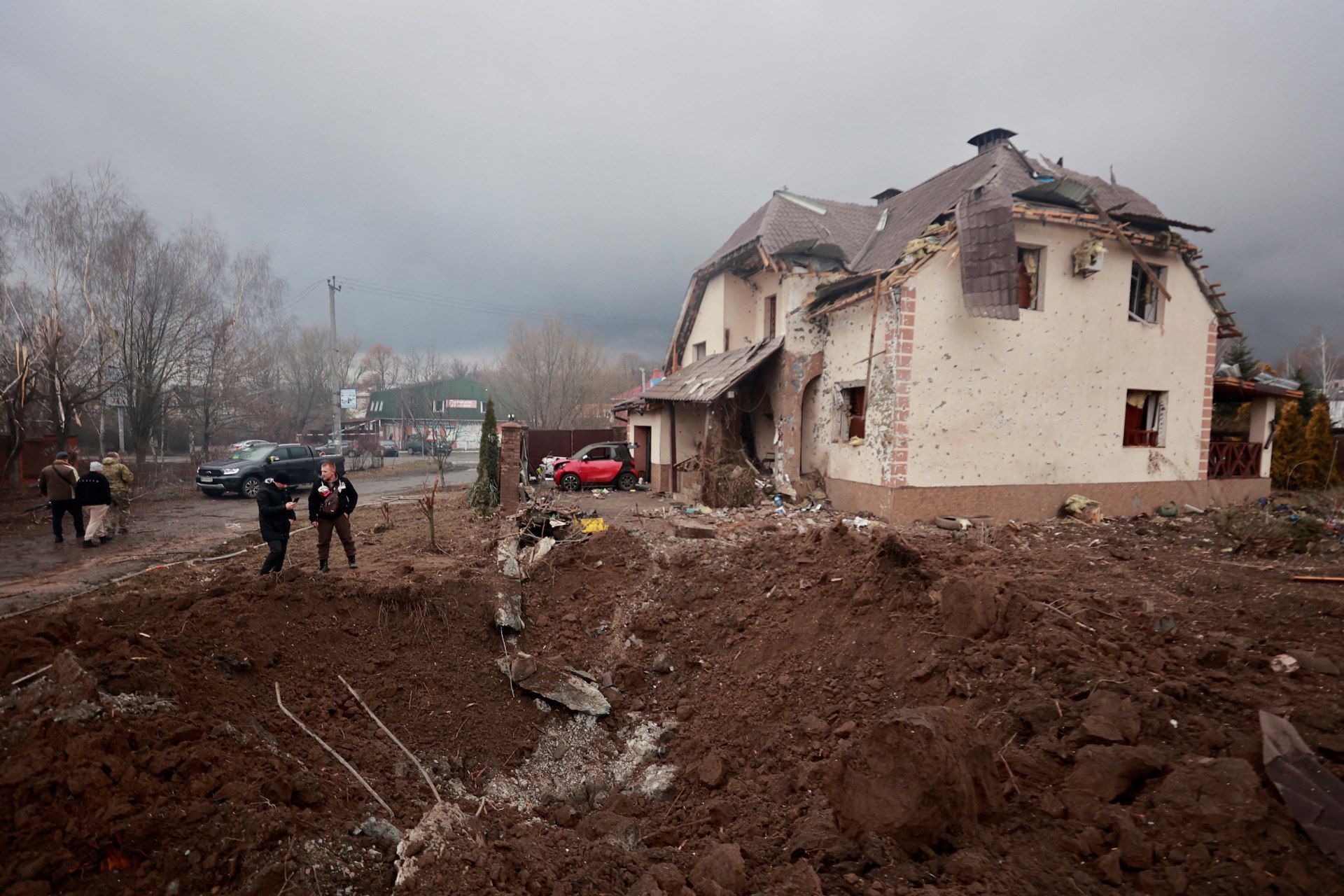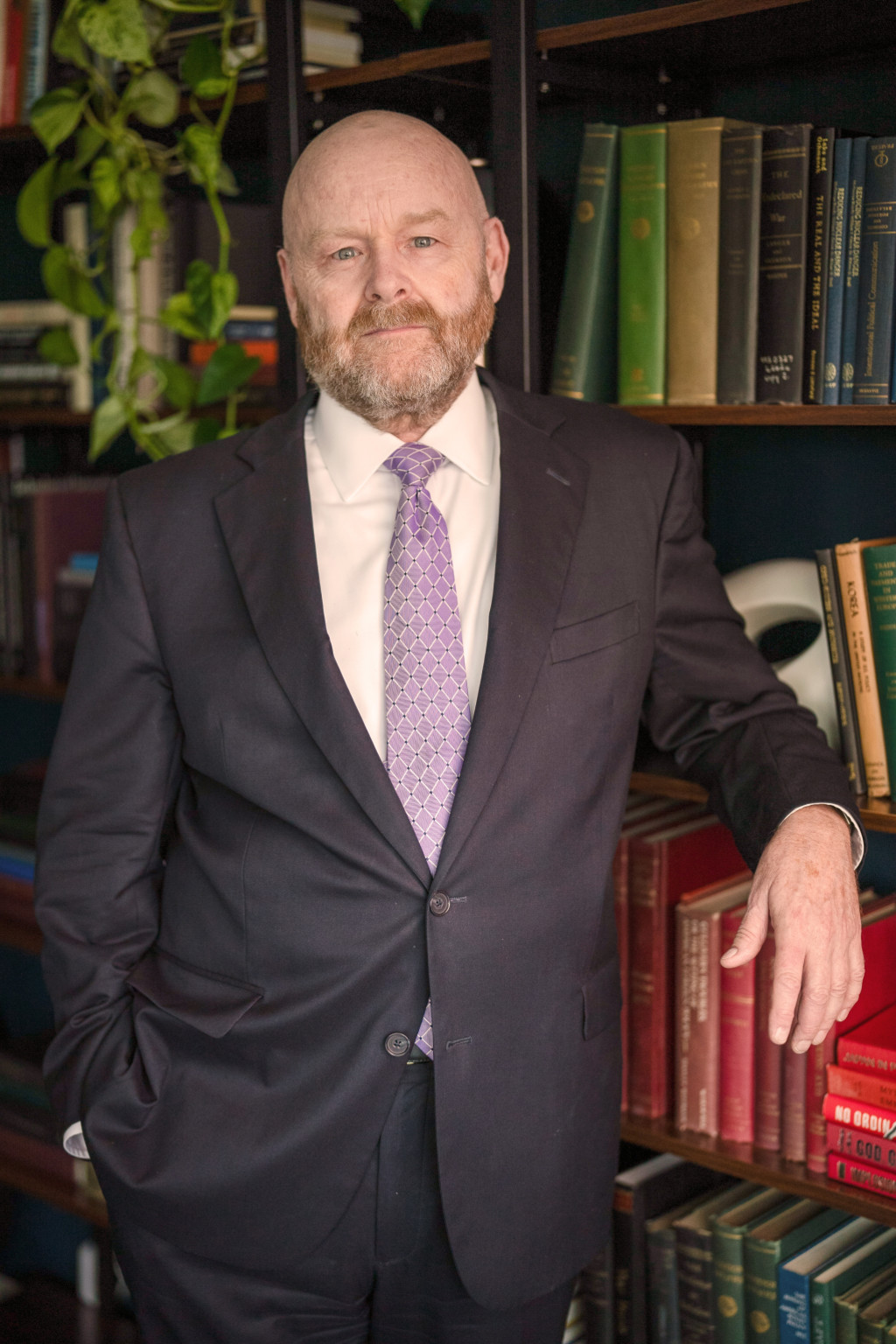Five Questions: Russia’s War on Ukraine
Five questions about how Russia’s invasion of Ukraine will develop and what it means for the world.

By experts and staff
- Published
Experts
![]() By James M. LindsayMary and David Boies Distinguished Senior Fellow in U.S. Foreign Policy
By James M. LindsayMary and David Boies Distinguished Senior Fellow in U.S. Foreign Policy
Vladimir Lenin once remarked that “there are decades where nothing happens; and there are weeks where decades happen.” We are living such weeks right now. The challenge is to make sense of what those changes will bring. Heading into the weekend, here are five questions I am pondering.
1. How will the war end? The war in Ukraine looks to be one that Russian President Vladimir Putin cannot win on his preferred terms. It’s also one he cannot afford to lose. The Russian Army may overrun part or all of Ukraine. But like the United States in Afghanistan and Iraq, Russia will discover that victory on the battlefield is the easy part. The subsequent occupation is the hard part. Crippling Western sanctions and a persistent insurgency will ensure that. But reversing course and withdrawing forces would be an admission of defeat that could doom Putin’s regime. His history suggests he always doubles down. That’s a dangerous strategy if the other side is willing to match your move. That makes it hard to see a diplomatic “off-ramp” for the crisis, which is a recipe for protracted fighting and possible escalation.
2. Can emotion, and politics, be kept in check? The outrage over Putin’s villainous decision to attack Ukraine is palpable. Videos of missiles hitting apartment buildings, refugees lined up in the bitter cold to cross borders, and the shelling of a nuclear power complex only fuel the anger. Calls for NATO to impose a no-fly zone over Ukraine are growing. That sentiment is understandable. It is also dangerous. To make it work, NATO would need to be prepared to down Russian planes. If Russia refused to blink in the face of that brinksmanship, the result would be, as Senator Marco Rubio (R-FL) bluntly put it, “World War III.” Conversely, outrage over the war will complicate any effort to strike a deal to end the fighting, if diplomacy is even possible. Any negotiation would require concessions that would reward Putin for his aggression. That would be a bitter pill to swallow. Hovering over all of this is the fact that, in the United States at least, politics hasn’t come to a stop. Republicans have been quick to blame President Joe Biden’s supposed weakness for Putin’s invasion. Those attacks aren’t likely to let up. They will even increase if they resonate with voters, potentially limiting Biden’s perceived room to maneuver.
3. Will transatlantic unity last? The reversal in Western defense and security policy over the past ten days has been breathtaking. A month ago, experts were questioning whether Putin might succeed in splitting Europe. He didn’t. Instead, he united it. The European Union imposed sanctions that once seemed unthinkable. Germany canceled the Nord Stream II pipeline, doubled its defense spending, and dropped its longstanding policy against sending lethal weapons to war zones. Sweden dispatched 5,000 anti-tank weapons to Ukraine, Finland opened debate on joining NATO, and Switzerland froze Russian assets and adopted the EU’s sanctions on Russia. But unity at the start of a crisis doesn’t guarantee unity at its end, especially if a crisis drags on, as this one well could. The collateral damage from sanctions on Russia will be felt differently across Europe. Putin will push disinformation to sow doubts in Europe. Legitimate disagreements could emerge within the transatlantic alliance over strategy, tactics, and timing in dealing with Putin. Strong political leadership and savvy diplomacy can keep potential divisions in check. Both could end up being in short supply.
4. What is China thinking? A lot of ink has been spilled speculating about what Xi Jinping knew about Putin’s plans and when he knew it. Whatever the answers to those two questions, the more pressing question now is what lessons Xi and the rest of China’s leadership are drawing from the invasion of Ukraine. Does it diminish their willingness to retake Taiwan by force? Does it persuade them that they need to “sanctions proof” the Chinese economy by accelerating a decoupling with the West, especially in strategically critical areas? Does it push them to rethink their relationship with Russia lest the anti-Moscow sentiment morph into anti-Beijing sentiment? Perhaps most important, does it lead them to reconsider their narrative that the West, and the United States in particular, are in decline? How Xi and his colleagues answer those questions will determine whether we are on the edge of an even larger crisis in the world order.
5. Are we prepared for the war’s ripple effects? What happens in Ukraine won’t stay in Ukraine. We have already seen a million refugees flee to Hungary, Poland, Romania, and Slovakia. Those numbers will go higher, especially if Putin pursues a scorched-earth policy. That is placing incredible pressure on those countries. It will also divert resources from other humanitarian disasters around the world and even exacerbate them. Ukraine is known as the “breadbasket of Europe” for good reason. It is the world’s fourth-largest producer of corn and wheat, the largest exporter of sunflower seeds, and a leading exporter of barley. Ukrainian farmers may not be able to get seeds in the ground during the coming planting season, obtain the fuel needed to run farm machinery or the fertilizers needed to ensure high crop yields, or succeed in harvesting and shipping their crops. The potential loss of Ukrainian exports will send global food prices higher, fuel inflation, and possibly generate political unrest in countries that depend on grain imports.
No, I don’t have answers to these five questions. As Yogi Berra famously put it, “It’s tough to make predictions, especially about the future.” It’s all the more complicated because so much depends on the calculations of one man, Vladimir Putin. But thinking through these questions will be critical to ensuring that the turbulent weeks we are currently experiencing lead to decades of a world we wish to inhabit.
Margaret Gach assisted in the preparation of this post.
